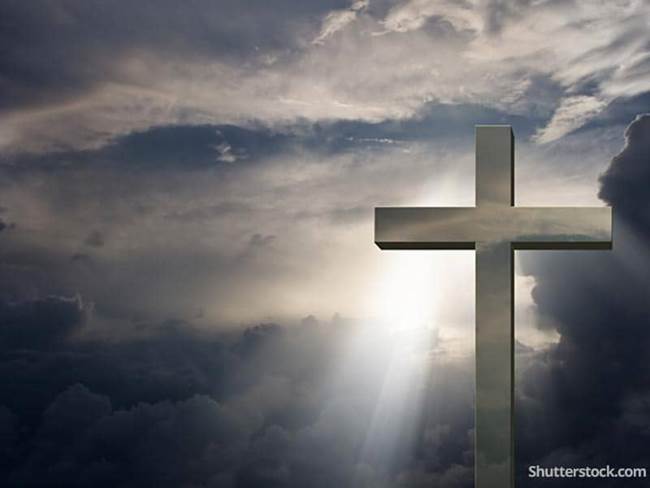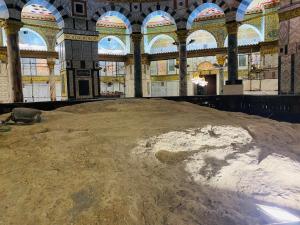Many believe in a Supreme Being who intentionally, artfully, and benignly created the universe and everything in it, by one process or another, including human beings who have a measure of reflective free will. Whether this is true or false is another discussion, but for our purposes this Supreme Being is assumed.
The Supreme Being doesn’t need anything in this created universe, in the sense that human beings and other creatures need things, nor was God obligated to create creatures with a measure of reflective free will, or who may have developed this free will in the course of the creative process.
I use the term measure of free will because no human being is perfectly free, as everyone is influenced by their genetic makeup, intelligence, environment, culture, and experiences, influences that may advance human freedom or constrain it.
There are a myriad of created things, inanimate and animate, that don’t possess reflective free will and inexorably obey fixed natural laws or make unreflective choices within a narrow band of activities, so, how does human free will affect the relationship of humankind to the Supreme Being?
Trying to look into the mind of God is a daunting enterprise, but if humankind was created with the capacity for, and attraction to, logic, it seems proper to employ it. If this benign Supreme Being wasn’t obligated to create creatures with a measure of reflective free will, then to what purpose, unless it’s necessary for true allegiance, and what earthly allegiance foreshadows? Without exercising the free will necessary for true allegiance, one might as well train a dog as coerce a human being to “submit” to God. Moreover, one does violence to creation by coercing (or un-creating) the free will intended for human beings. Without exercising the reflective free will necessary for allegiance, it has no purpose; all created things might as well be inanimate objects, or creatures without reflective free will.
Reflective free will is the matrix in which moral choices are made, some good and some disordered. The submission that’s described in profound spiritual works isn’t a rejection of the Supreme Being’s gift of reflective free will, but the negation of the self-will that seeks to usurp the prerogatives of God, as did Lucifer, and then Adam and Eve, a usurpation that diminishes the authentic freedom that corresponds to ones created nature.
Lest we think these are modern ideas with no historical precedent, Augustine said, “God created us without us, but he did not will to save us without us,” meaning conversion involves our willful cooperation, something Thomas Aquinas called ‘cooperative grace’. For Aquinas, conversion is incomplete or invalid if the “converted” does not freely and fully accept the Supreme Being’s invitation to allegiance.
Does this mean all evangelization and conversion efforts are destructive of free will, whether they’re practiced by conquest and compulsion, or more subtly?
Efforts to convert should be judged by whether they advance reflective free will or constrain it. One may place a glass around a candle that expands or directs its light, or one may place something over the candle that shades or blocks its light. So it is with conversion efforts, which may expand/direct reflective free will or compromise it, sometimes with such violence that the person retains no more free will than lower forms of life.
“Conversion” by conquest or coercion does damage to the Supreme Being’s creative plan and diminishes or nullifies the allegiance God desires. Submittal absent free will is worse than physical enslavement, as the slave may retain a measure of reflective free will in spite of his bondage, while the person who is compelled to submit, in the sense of denying free will, has nothing, the miserable state so horrifyingly described in George Orwell’s “1984”: “O cruel needless misunderstanding! O stubborn self-willed exile from the loving breast! Two gin-scented tears trickled down the side of his nose. But it was all right, everything was all right, the struggle was finished. He had won the victory over himself. He loved Big Brother.” A story that spoke to Marxism in Orwell’s day, and to militant Islamism in ours.
Contrast this dystopian “allegiance” with the Crucified, who came to remove the barrier between the human race and God, and who wouldn’t compel or coerce allegiance, even to the extent of completely emptying himself so as to attract and enliven human wills without doing them the least violence.
What are the fruits of true allegiance? Religious texts and spiritual writers suggest the temporal misery that accompanies reflective free will—what Karol Wojtyla called the mysterium iniquitatis—is necessary in the Divine calculus for human beings to enter into that larger life in which true allegiance becomes joyous union, without loss of human personality. Though humanly incomprehensible, it’s imperative for women and men to consciously and willfully evolve, through struggle and trial from creatures to sharers in the Divine Life.
T.M. Doran is the author of “Toward the Gleam”, “Terrapin”, and “Iota”, a Fellow of The Engineering Society of Detroit, and a former adjunct professor at Lawrence Technological University.














